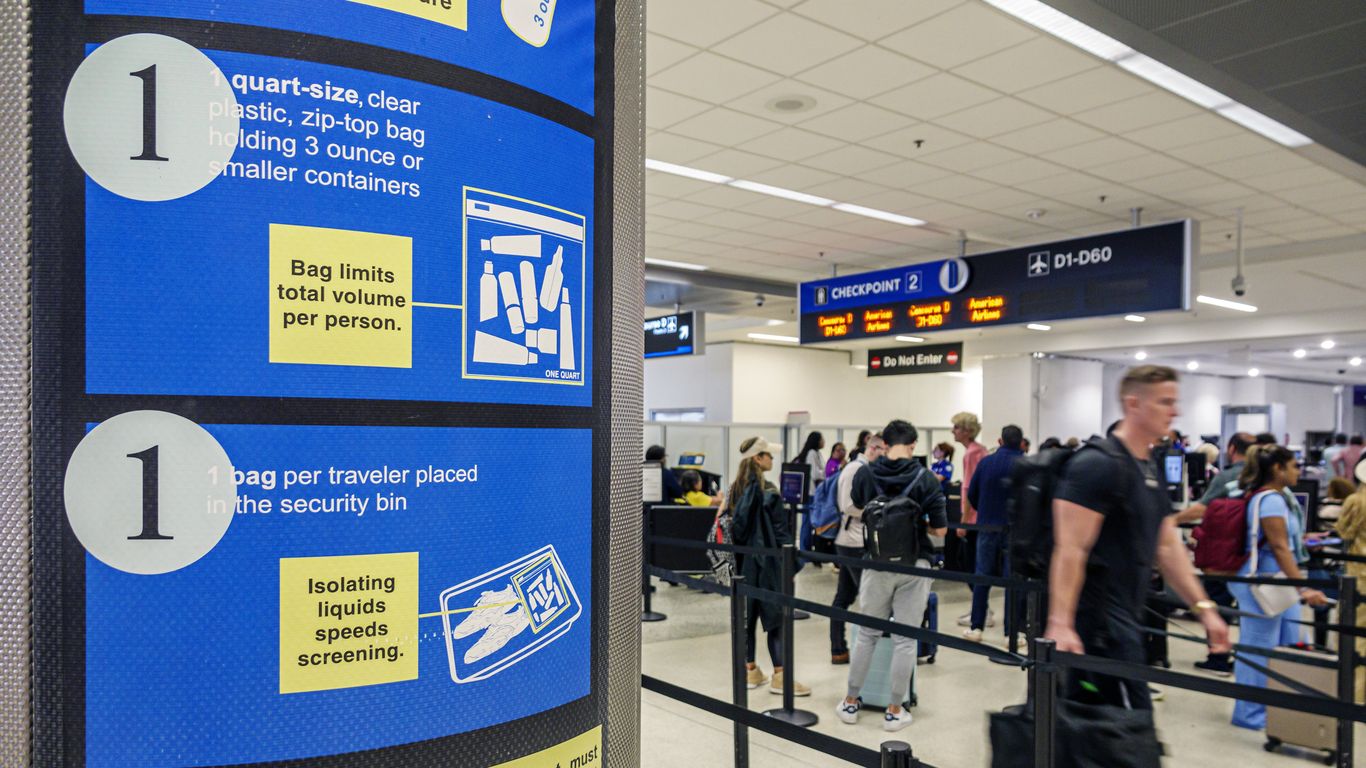TSA Considers Relaxing Liquids Restrictions

Introduction
Homeland Security Secretary Kristi Noem has announced that the Transportation Security Administration (TSA) is considering relaxing the current restrictions on liquids in carry-on bags. This potential change comes after the recent decision to end the "shoes off policy" for airport security. The TSA is continuously reevaluating their security measures and looking for ways to improve the travel experience for passengers. This potential change could have a significant impact on the way we travel and pack for flights.
Current Liquid Restrictions
Currently, the TSA limits all liquids in carry-on bags to containers of 3.4 ounces or less. This includes items such as shampoo, lotion, and other toiletries. These restrictions were put in place in 2006 after a foiled terrorist plot to use liquid explosives on airplanes. Since then, passengers have had to adhere to these strict limitations, often resulting in inconvenience and frustration.
Possible Changes and Benefits
If the TSA does decide to relax the liquid rules, it could mean a more hassle-free travel experience. Passengers will no longer have to worry about transferring their liquids into smaller containers or leaving items behind. This change could also benefit the airport security process, as officers will have less items to screen and can focus on more significant security threats. Additionally, this potential change could also have a positive impact on the tourism industry, as travelers will be more
About the People Mentioned
Kristi Noem
Kristi Noem is a South Dakota politician born on November 30, 1971, in Watertown, South Dakota. She grew up on a family ranch and farm in rural Hamlin County. Noem graduated from South Dakota State University with a Bachelor of Arts degree in Political Science in 2011. She began her political career in the South Dakota House of Representatives, serving from 2006 to 2010, including a stint as Assistant Majority Leader. In 2010, she was elected to the U.S. House of Representatives, representing South Dakota's at-large congressional district for four terms until 2019. In 2018, Noem made history by becoming South Dakota's first female governor. She was reelected in 2022. During her tenure as governor, Noem focused on reducing taxes, cutting regulations, and promoting economic growth. Her approach to the COVID-19 pandemic, which included not implementing statewide lockdowns or mask mandates, garnered national attention. Noem is known for her conservative stance on issues like gun rights and border security. Noem has written two books: *Not My First Rodeo: Lessons from the Heartland* (2022) and *No Going Back* (2024). In January 2025, she resigned as governor after being confirmed by the Senate as the United States Secretary of Homeland Security, the first South Dakotan to hold this position. As Secretary, she oversees a department with over 260,000 employees and a budget exceeding $100 billion. Recently, while in her role as Homeland Security Secretary, Noem was involved in a controversial incident in Los Angeles where a U.S. Senator was forcibly removed from a press conference. Despite this, she continues to be a prominent figure in U.S. politics, particularly in conservative circles.
About the Organizations Mentioned
Transportation Security Administration
The **Transportation Security Administration (TSA)** is a U.S. federal agency under the Department of Homeland Security responsible for safeguarding the nation’s transportation systems, primarily focusing on airport security and preventing aircraft hijackings. Established in response to the September 11, 2001 terrorist attacks, the TSA was created to consolidate and enhance air travel security through federal oversight and coordinated policies[1]. The TSA’s core functions include screening passengers and their baggage at over 450 airports nationwide using technologies such as full-body scanners, explosives detection, and pat-downs. It also deploys specialized personnel like Transportation Security Officers (TSOs), explosives detection dog handlers, bomb technicians, and armed Federal Air Marshals on aircraft to protect travelers[1][2][3]. Beyond aviation, the TSA develops security policies for other transport sectors including highways, railroads, buses, mass transit, ports, and pipelines, working in partnership with federal, state, and local agencies[1]. Since its inception, the TSA has evolved into a large organization with a budget of approximately $9.7 billion (FY 2023) and employing over 47,000 security personnel[1]. It manages a complex balance between rigorous security measures and maintaining efficient passenger flow, often employing advanced technology and training to detect threats while minimizing inconvenience[2][3]. The agency values integrity, respect, and commitment, emphasizing a professional workforce engaged in counterterrorism efforts to ensure freedom of movement for people and commerce[3][4]. Notable aspects of the TSA include its pioneering role in airport security innovation post-9/11, its expansive nationwide presence, and ongoing challenges such as public scrutiny over privacy, effectiveness, and occasional controversies related to security procedures. Despite this, the TSA remains a central pillar in the U.S. transportation security framework, continuously adapting to emerging threats and technologies to protect millions of travelers daily[1][3][5].










